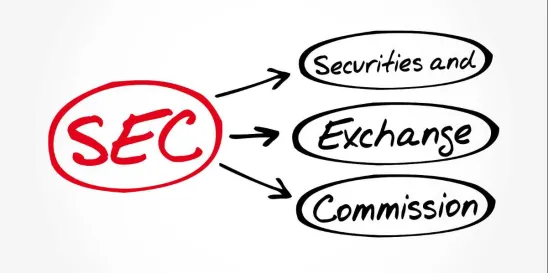On Dec. 28, 2023, Judge Jed S. Rakoff of the U.S. District Court for the Southern District of New York issued his eagerly anticipated second opinion in the Securities and Exchange Commission’s (SEC’s) ongoing battle with Terraform Labs Pte. Ltd. and its founder, cryptocurrency entrepreneur Do Hyeong Kwon. Judge Rakoff ruled that several Terraform-issued crypto assets were securities under the Supreme Court’s 1946 Howey test, and granted summary judgment for the SEC in finding that the defendants violated U.S. law by failing to register the offerings of two such securities. The court ruled that a related set of fraud claims advanced by the SEC will go to trial.
The Terraform order is the latest installment in a growing number of district court opinions examining when digital assets should be categorized as securities in lawsuits brought by the SEC.
Background
The Terraform litigation stems primarily from the implosion of two related digital assets created and launched by Terraform – TerraUSD (UST) and LUNA – which are believed to have caused the collapse in digital asset and cryptocurrency prices in May 2022.
UST was a “stablecoin,” the price of which was intended to maintain a constant algorithmic peg to one U.S. dollar. The LUNA coin was meant to function as a companion to UST, in that LUNA was exchangeable at its holder’s option for one dollar’s worth of UST and vice-versa. Terraform also issued a token called MIR, which allowed its holders to share in fees generated by a protocol enabling investors to acquire synthetic exposure to the shares of various U.S.-listed companies. It is estimated that the crypto assets comprising the Terraform ecosystem lost more than $40 billion in market value when UST lost its dollar peg in early 2022.
The SEC’s February 2023 complaint claimed that UST, LUNA, and MIR were securities because each constituted an “investment contract” within the meaning of Howey. The complaint further alleged that Terraform had violated the federal securities laws by fraudulently misleading investors as to the value of UST, LUNA, and MIR, and by conducting unregistered U.S. public offerings of LUNA and MIR. In July 2023 in SEC v Ripple Labs, Inc., Judge Rakoff denied the defendants’ motion to dismiss in an opinion notable for its rejection of a fellow Southern District of New York judge’s finding that whether a digital asset’s status is an investment contract under Howey depends on if an investor purchases the asset directly from its issuer or in secondary market trading. The parties filed cross-motions for summary judgment.
The December 2023 Opinion – Key Components
Judge Rakoff’s 2023 opinion has three main aspects and key interpretive impacts applicable to the design, offering, and sale of digital assets and their related market participants.
Terraform’s Crypto Assets Were Securities
The opinion concluded that there was “no genuine dispute” that UST, LUNA and MIR were securities as a result of all three digital assets being investment contracts. The court found that the three elements of Howey – 1) the investment of money; 2) in a common enterprise; 3) with profits to be derived solely from the efforts of others – were clearly satisfied with respect to each asset. With regard to the third Howey element, the court pointed to numerous public statements by Kwon and other Terraform representatives regarding the economic benefits that a purchaser could expect to reap from Terraform’s work to develop its ecosystem. These statements ranged from the comparatively dry to the more colorful and quintessentially crypto.
Interestingly, in the case of UST, Judge Rakoff did not find that UST in isolation was an investment contract (as a stablecoin, UST by its nature would not inspire one to expect profits from holding it). Rather, the opinion held that UST was an investment contract when coupled with Terraform’s “Anchor Protocol,” a staking protocol developed and purportedly aggressively marketed by the defendants as a means for UST holders to deposit and pool their tokens for lending to third parties, “with accrued interest distributed to all depositors.” In Judge Rakoff’s view, the conclusion that “UST in combination with the Anchor Protocol constituted an investment contract” was not affected by the fact that some UST holders declined to deposit their tokens into the staking protocol; this indicated merely that, in the words of Howey, some holders “‘chose not to accept the full offer of an investment contract.’”
Terraform Conducted Illegal U.S. Public Offerings of LUNA and MIR
The court granted summary judgment for the SEC on the issue of whether Terraform had engaged in U.S. public offerings of LUNA and MIR in violation of the Securities Act’s registration provisions. Among other things, the court found that Terraform sold tokens directly to institutional investors through written sale agreements that explicitly and implicitly contemplated Terraform’s development of a secondary market; and made no effort to restrict purchasers’ resales, a step that would have been necessary for Terraform to claim a registration exemption. With respect to the latter point, the court found that Terraform’s own repeated statements about its plan to develop a liquid trading market made clear that Terraform neither expected nor wanted its purchasers to refrain from distributing their tokens.
A Jury Will Decide Whether Terraform and Kwon Committed Securities Fraud
The court denied both the SEC’s and the defendants’ motions for summary judgment on the question of whether the defendants committed securities fraud by making misleading statements to investors, finding that “genuine disputes of material fact linger” on this issue. The SEC’s fraud claims therefore will be heard by a jury.
Takeaways
The December Terraform opinion reinforces two clear lessons. The first is that enthusiastic public statements by token issuers as to the likelihood of future profits resulting from their ecosystem development efforts are an invitation to SEC attention and always heighten the risk of a “bad” Howey outcome.
The second is that a Securities Act registration exemption is not secured simply by transacting exclusively with large or sophisticated purchasers; for a “private placement” exemption to be available, the issuer must take contractual and other steps to prevent its purchasers from engaging in U.S. resales that themselves amount to a public offering.
Those are relatively simple points that one hopes by now have been absorbed by market participants. The real interest of Terraform therefore perhaps resides in another area. This is the opinion’s reminder, emerging from its treatment of the UST token, that a court need not analyze an asset in a vacuum when considering whether it is a Howey investment contract. A court instead is free to consider the totality of the issuer-created circumstances surrounding the asset, which in some cases might result in an inert non-security (an orange grove or a stablecoin) entering investment contract status when combined with a dynamic third-party profit-seeking arrangement (a harvesting contract or a yield protocol).
In Terraform, the requisite combination was UST and the Anchor Protocol, by which Terraform sought to offer yield to participants by developing a well-publicized UST lending business. The opinion thus may put digital asset developers on notice that the introduction of a related yield or staking protocol for use by holders of the asset may expose the combined construct to designation as an investment contract – and thus potentially expose the developer to the anti-fraud provisions and/or the registration requirements of the federal securities laws. Judge Rakoff’s opinion seems to make clear that the recent, and in some instances much celebrated, Ripple Labs conclusion, that certain digital assets do not qualify as securities for certain purchases made through secondary platforms, may not be a rock on which digital asset sellers and other market participants can build.
When it comes to protocol development and the sale of digital assets, Judge Rakoff seems to have put the industry on notice that ecosystem integrations, combined marketing, and related deployment opportunities in smart contracts and staking mechanisms may cause underlying assets to function as and be deemed securities.





 />i
/>i

